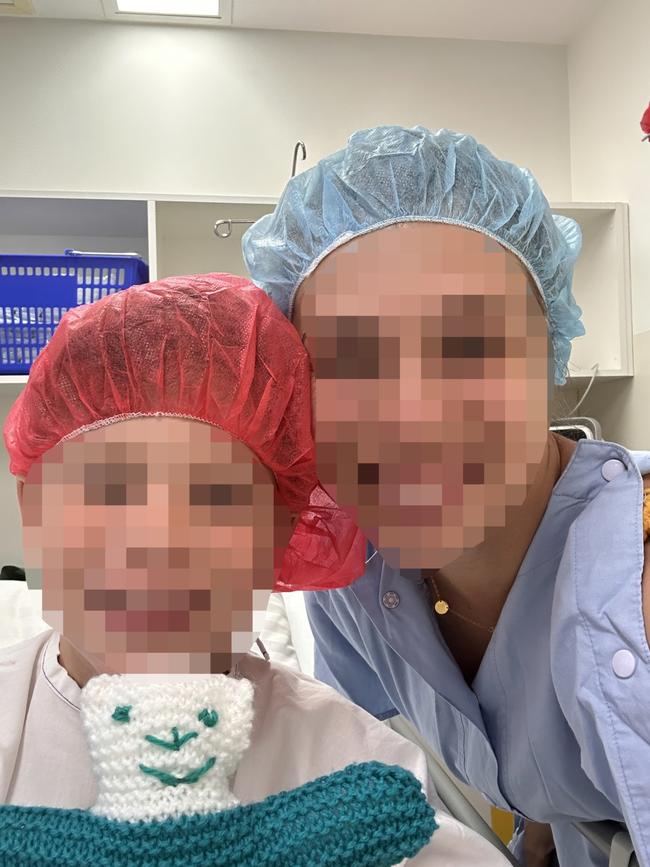TikTok And ADHD: Misdiagnosis Concerns

Table of Contents
The Allure of Self-Diagnosis on TikTok
The easily digestible and relatable nature of ADHD content on TikTok presents a significant risk. Short, engaging videos often focus on relatable symptoms, creating an environment ripe for confirmation bias. This means individuals might focus on information that confirms their pre-existing suspicions, even if that information is inaccurate or incomplete.
Relatable Content and Confirmation Bias
- Relatable TikTok trends: Videos showcasing common ADHD experiences like forgetfulness, hyperfocus, or impulsivity can resonate deeply with viewers who may already suspect they have ADHD.
- Ease of finding "symptoms" online: The abundance of ADHD-related content on TikTok makes it incredibly easy to find information seemingly confirming personal experiences, regardless of accuracy.
- Lack of nuanced understanding: The short-form video format often lacks the nuance and complexity required for a thorough understanding of ADHD, potentially leading to misinterpretations of symptoms.
The Danger of Online Quizzes and Tests
Numerous ADHD quizzes and tests circulate online, promising quick and easy diagnoses. However, these tools lack clinical validity and should never be considered a substitute for professional evaluation.
- Lack of clinical validity: Online tests often lack the rigorous scientific backing and comprehensive assessment methods used by qualified professionals.
- Misinterpreting results: Even if a quiz suggests a possible ADHD diagnosis, the results are unreliable and cannot accurately reflect the complexity of the condition.
- Dangers of self-medication: Based on unreliable online information, individuals may attempt self-medication, which can be extremely dangerous and potentially harmful.
Distinguishing ADHD from Other Conditions
Many conditions share symptoms with ADHD, making accurate self-diagnosis nearly impossible. Misdiagnosis can occur when individuals mistake symptoms of other conditions for ADHD without a proper professional assessment.
Overlap with Other Mental Health Conditions
ADHD symptoms often overlap with those of other mental health conditions, including:
- Anxiety: Both ADHD and anxiety can manifest as restlessness, difficulty concentrating, and emotional volatility.
- Depression: Symptoms like low motivation, difficulty concentrating, and sleep disturbances are common to both ADHD and depression.
- Autism: Challenges with social interaction, communication, and repetitive behaviors can be present in both autism and ADHD.
A comprehensive evaluation by a mental health professional is crucial to differentiate between these conditions and arrive at an accurate diagnosis.
The Influence of Social Media Trends on Perception
Trending hashtags and challenges related to ADHD can further skew perceptions and lead to misidentification.
- Misleading trends: Some viral trends might focus on specific, less common ADHD traits, creating a skewed understanding of the disorder.
- Social media's "echo chamber" effect: The tendency for social media to reinforce pre-existing beliefs can amplify inaccurate perceptions of ADHD, potentially leading individuals to self-diagnose incorrectly.
The Importance of Professional Diagnosis
Accurate diagnosis and effective treatment of ADHD require the expertise of qualified healthcare professionals. Self-diagnosis based on TikTok trends is not only inaccurate but potentially harmful.
The Role of a Qualified Healthcare Professional
Psychiatrists, psychologists, and other qualified healthcare professionals play a vital role in accurately diagnosing ADHD. This process typically involves:
- Clinical interviews: Detailed discussions to understand the individual's symptoms, history, and experiences.
- Behavioral assessments: Evaluations to assess attention, impulsivity, and hyperactivity levels.
- Standardized questionnaires: Formal questionnaires designed to measure ADHD symptoms and related challenges.
A comprehensive evaluation considers various factors to ensure an accurate diagnosis.
Seeking Appropriate Treatment and Support
Once a diagnosis is established, professional help is essential for effective treatment and support. Evidence-based therapies include:
- Behavioral therapy: Techniques to manage symptoms and improve coping skills.
- Medication: In some cases, medication can help manage ADHD symptoms, though it is not always necessary.
- Support groups: Connecting with others facing similar challenges can offer valuable support and understanding.
Conclusion
Self-diagnosing ADHD based on TikTok content is risky and unreliable. The platform's short-form videos, while potentially raising awareness, can easily lead to misdiagnosis and the dangerous practice of self-medication. It's crucial to remember that raising awareness is different from promoting self-diagnosis. There's a significant difference between learning about ADHD symptoms and attempting to diagnose oneself based on limited online information. Accurate diagnosis requires a professional evaluation. Don't rely on TikTok for ADHD diagnosis; seek professional help for proper evaluation and support. If you have concerns about ADHD or other mental health conditions, consult a qualified healthcare professional for an accurate diagnosis and appropriate treatment plan.

Featured Posts
-
 Will Pitchers Name Crack The Mets Starting Rotation A Performance Review
Apr 29, 2025
Will Pitchers Name Crack The Mets Starting Rotation A Performance Review
Apr 29, 2025 -
 Capital Summertime Ball 2025 Ticket Information And Purchase Guide
Apr 29, 2025
Capital Summertime Ball 2025 Ticket Information And Purchase Guide
Apr 29, 2025 -
 Secure Your Capital Summertime Ball 2025 Tickets Purchase Options And Tips
Apr 29, 2025
Secure Your Capital Summertime Ball 2025 Tickets Purchase Options And Tips
Apr 29, 2025 -
 Missing Person British Paralympian Last Seen In Las Vegas Over A Week Ago
Apr 29, 2025
Missing Person British Paralympian Last Seen In Las Vegas Over A Week Ago
Apr 29, 2025 -
 Extreme Price Hike For V Mware At And Ts Concerns Over Broadcoms Proposal
Apr 29, 2025
Extreme Price Hike For V Mware At And Ts Concerns Over Broadcoms Proposal
Apr 29, 2025
Latest Posts
-
 Our Farm Next Door A Familys Story Of Farming And Community
Apr 30, 2025
Our Farm Next Door A Familys Story Of Farming And Community
Apr 30, 2025 -
 Meet Amanda Clive And The Kids A Day In The Life Of Our Farm Next Door
Apr 30, 2025
Meet Amanda Clive And The Kids A Day In The Life Of Our Farm Next Door
Apr 30, 2025 -
 Life On Our Farm Next Door Amanda Clive And Their Family
Apr 30, 2025
Life On Our Farm Next Door Amanda Clive And Their Family
Apr 30, 2025 -
 Meet Amanda Clive And Kids A Day In The Life Of Our Farm Next Door
Apr 30, 2025
Meet Amanda Clive And Kids A Day In The Life Of Our Farm Next Door
Apr 30, 2025 -
 Our Farm Next Door Amanda Clive And The Kids Country Life
Apr 30, 2025
Our Farm Next Door Amanda Clive And The Kids Country Life
Apr 30, 2025
